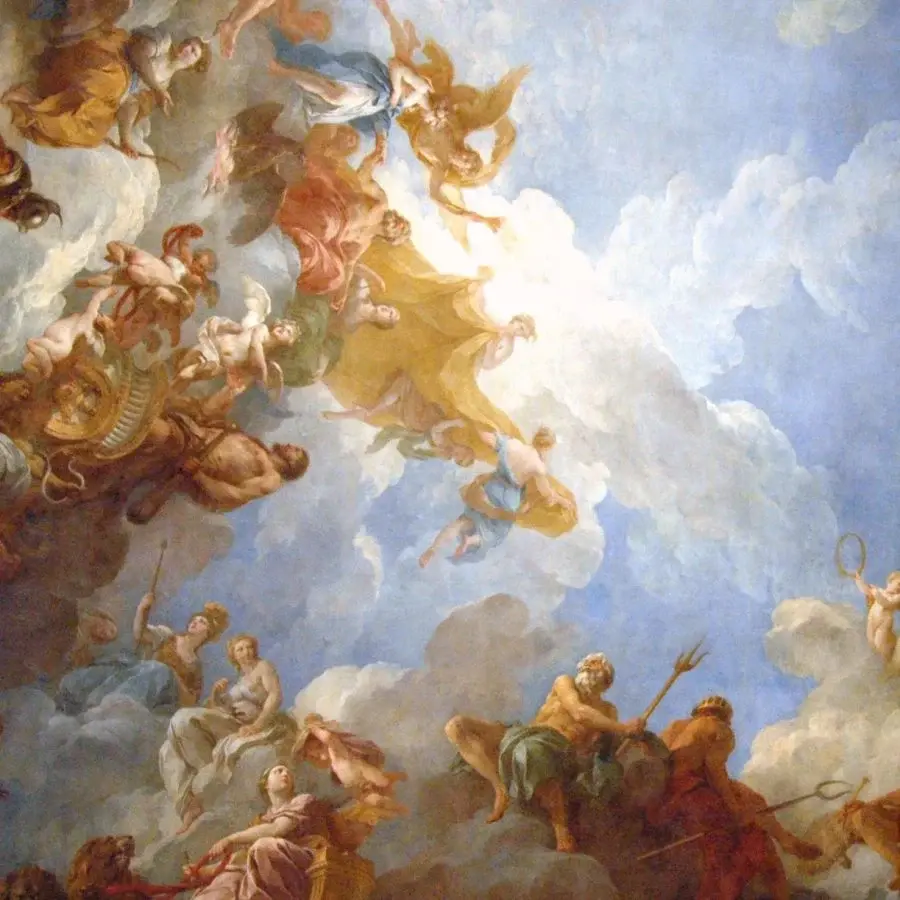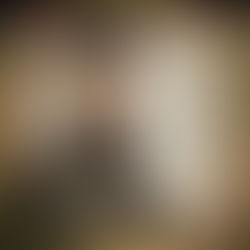The Catholic Defender: The True Visions of Heaven and Hell.
- Donald Hartley

- Feb 21, 2024
- 6 min read

An international evangelist, Mary K. Baxter (1940–2021) was in full-time ministry for over thirty years, ever since she was taken by God into the dimensions and torments of hell, as well as the streets of heaven, for over forty nights in 1976.
Christians should avoid Baxter’s book. It is not revelation, as she claims. Based on her claims that the book is not illumination, but new revelation, it violates the teaching in Scripture, demotes Scripture, and is, therefore, heresy.
St. Faustina on Heaven
Less than a century ago, St. Faustina Kowalska recorded her vision of heaven in her Diary entry for Nov. 27, 1936:Today I was in heaven, in spirit, and I saw its unconceivable beauties and the happiness that awaits us after death. I saw how all creatures give ceaseless praise and glory to God. I saw how great is happiness in God, which spreads to all creatures, making them happy; and then all the glory and praise which springs from this happiness returns to its source; and they enter into the depths of God, contemplating the inner life of God, the Father, the Son, and the Holy Spirit, whom they will never comprehend or fathom. This source of happiness is unchanging in its essence, but it is always new, gushing forth happiness for all creatures. Now I understand St. Paul, who said, ‘Eye has not seen, nor has ear heard, nor has it entered into the heart of man what God has prepared for those who love him.’
God has given me to understand that there is but one thing that is of infinite value in His eyes, and that is love of God; love, love and once again, love; and nothing can compare with a single act of pure love of God. Oh, with what inconceivable favors God gifts a soul that loves Him sincerely!
The sight of this great majesty of God, which I came to understand more profoundly and which is worshipped by the heavenly spirits according to their degree of grace and the hierarchies into which they are divided, did not cause my soul to be stricken with terror or fear; no, no, not at all! My soul was filled with peace and love, and the more I come to know the greatness of God, the more joyful I become that He is as He is. And I rejoice immensely in His greatness and am delighted that I am so little because, since I am little, He carries me in His arms and holds me close to His Heart.
She concludes: “O my God, how I pity those people who do not believe in eternal life” and prayed “a ray of mercy would envelop them too, and that God would clasp them to His fatherly bosom ...”
St. John Bosco on Heaven
St. John Bosco, known as Don Bosco, wrote of his vision of heaven on Dec. 6, 1876. He said that “all was blue as the calmest sea, though what I saw was not water …”
He described “broad imposing avenues divided the plain into grand gardens of indescribable beauty.” He heard “music most sweet — so delightful and enchanting a melody that” he “could never adequately describe. … One could tell from the expressions of those happy faces that the singers not only took the deepest pleasure in singing but also received vast joy in listening to the others … and this was their song: Salvation, honor and glory to Almighty God and Father … the Creator who was, who is and who will come to judge the living and the dead forever and ever.”
As a multitude of boys approached, he said he recognized many who had been at “the Oratory and in our other schools, but by far the majority of them were total strangers. … Their endless ranks drew closer, headed by (St.) Dominic Savio,” followed by many priests leading the groups. Savio stood an arms’ length away from Don Bosco. “[A] crown of roses encircled his head.” A dialogue ensued:
Dominic Savio: ‘You are in the abode of happiness … where one experiences every joy, every delight.’
Don Bosco: “Is this the reward of the just?”
Dominic Savio: “Not at all! Here we do not enjoy supernatural happiness, but only a natural one, though greatly magnified.”
Don Bosco: “Everything here then is natural?”
Dominic Savio: “Yes, only enhanced by God’s power.”
Don Bosco: “Oh! I thought this was Paradise.”
Dominic Savio: “Oh no, no! … No human eye can look upon the beauty of Paradise.”
Don Bosco: “And this music … is it the music which you enjoy in heaven?”
Dominic Savio: “No, no absolutely not!”
Don Bosco: “Are these then natural sounds?”
Dominic Savio: “Yes, of course, but brought to perfection by God’s infinite power.”
Don Bosco: “And this light which outshines the very sun’s brilliance — is it a supernatural light? Is it heavenly light?”
Dominic Savio: “It is only natural light, fortified and perfect by God’s omnipotence.”
Don Bosco: “Might I be allowed to see a little supernatural light?”
Dominic Savio: “No one can see it until he has come to see God as He is. The faintest ray of that light would instantly strike one dead, because the human senses are not sturdy enough to endure it.”
Don Bosco: “Could there possibly be a natural light lovelier than this?”
Dominic Savio: “Yes, but if you could only see a single ray of natural light increased by just one degree, you would go into an ecstasy … I’ll give you a proof of what I say ...”
(Don Bosco writes, “Instantly from the remotest heavens, a sudden streak of light flashed through space, fine as a thread, but so brilliant, so piercing that my gaze faltered in pain. … The filament of light was a hundred million times brighter than the sun; its brilliance could have lit up our entire universe. … After some minutes, I opened my eyes again …)
Don Bosco: “Was not that a heavenly beam?”
Dominic Savio: “It was not a supernatural light,” Dominic replied, “though ever so much superior in brilliance than the light of the world. It was nothing more than earthly light rendered ever so dazzling by God’s power. Even if a vast array of light as strong as the ray you saw at the end of that crystal sea were to cover the whole world, it would still not give you an idea of the splendor of Paradise.”
Don Bosco: “Then what do you enjoy in Paradise?”
Dominic Savio: “Ah, that defies all telling. The happiness of heaven no mortal beings can ever know until they die and are reunited with their maker. We enjoy God — nothing else!”
St. Teresa of Ávila on Heaven
St. Teresa also spoke of indescribable light in her vision, which unfolded gradually. She wrote:
One day, while I was in prayer, Jesus was so kind as to show me his hands. They were so beautiful that I do not know how to describe them. … A few days from then I saw His divine face and I was left completely enraptured. … The Lord showed Himself to me little by little, given that He had to give me grace in order to see Him entirely. However, I understood that it suited my natural weakness to happen this way. May He be forever blessed!
A creature so miserable and vile like me could not have resisted such glory if that God of bounty that I knew had not prepared me little by little. … My Father, how could I not want to contemplate two hands and a beautiful face. But these glorified beautiful bodies glow of such glory and such an elevated supernatural beauty that the sight of them muddles all reason.
The very sacred Humanity of Jesus Christ appeared to me complete and whole on the Feast of St. Paul, while I was assisting at Holy Mass. He was in that form that one gets used to seeing in depictions of the resurrection, but yet of an incomparable beauty and majesty, as I had already written in detail after the formal command that I had been given [after seeing] Heaven and such ecclesiastic beauty of these glorious bodies that have forever an immense blessedness, especially in contemplating the Humanity of Our Lord Jesus Christ. If He is like this on Earth, where He shows Himself in proportion to our natural weakness, what will be in Heaven where one will enjoy Him in all of His splendor?
It is a light that does not wane, a candidness full of sweetness, a splendor infused that deliciously enchants the eyes without tire, as does the clarity in which one sees the sublime reality. It is a light so different from ours that shines from the sun, that in comparison the sun seems very dim, this light so bright that after seeing it one cannot even open his eyes. … Not yet has sun or light had any resemblance to that light. Besides, our forms of light seem rather artificial and that one only natural: light without sunset, that nothing can disturb it because it is eternal, of such force that nobody could even imagine it, not even a great genius that contemplated it for life.





















Comments